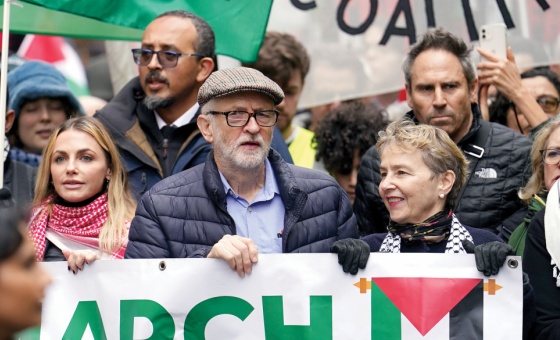This is the last article you can read this month
You can read more article this month
You can read more articles this month
Sorry your limit is up for this month
Reset on:
Please help support the Morning Star by subscribing here
WHAT’S the main issue for working people right now?
Well, talk to anyone at work, and they will tell you how worried they are about the soaring cost of fuel and the rising prices of so many shopping items.
At the same time, millions of employees are receiving below-inflation wage increases. In other words, their pay is, effectively, being cut.
While massive profiteering by the energy companies is at the root of much of this pressure, and pre-dated the current conflict in Ukraine, the war, including Nato’s role in it, is certainly exacerbating the situation, pushing up the cost of many foods, such as grain and sunflower oil.
Add to this the spectre of job insecurity, and it’s little wonder that so many workers are feeling hugely anxious about their own futures. Indeed, some of them are already having to choose between eating and heating their homes.
The erosion of job security, though, is no accident, or a result of market forces. As Barry Gardiner MP recently made clear (M Star April 13), the law in our country protects bosses, not workers.
The class nature of the current crisis is all too apparent, as those who own capital continue to make enormous sums of money, at the expense of those who work for them.
The recent attempt to make “fire and rehire” illegal, for instance, was opposed, and defeated, by the Tories in Westminster.
The outrageous treatment of the P&O workers, with the government wringing its hands but doing very little is another example.
When Jeremy Corbyn was Labour leader, we could have relied upon the party to be leading the resistance to the continuing attacks on the rights of people in the workplace.
But sadly under its new leadership, advised by the likes of Peter Mandelson, it is silent on offering an alternative economic strategy, offering no hope to the young, while at the same time enthusiastically endorsing the warlike posturing of Nato and accepting the never-ending transfer of wealth and power to the already super-rich.
So if Parliament is no longer a place where socialist and alternative policies can fruitfully be promoted, real resistance has to come from working-class communities themselves.
Over the past three years, delegates to the Trades Union Congress have backed the concept of a New Deal for Workers — an idea promoted by the Communication Workers Union.
The TUC has called a national demonstration, “We Demand Better, Enough is Enough,” for June 18.
Millions of people who oppose this corrupt government are looking for a lead to transform anger into action for real change.
Every campaigning community group and tenants’ association, NHS campaign, trades union branch and workplace organisation has a part to play in making the rich pay for the crisis.
Local trades union councils, combined with People’s Assembly groups in their areas, are well placed to provide that leadership.
The People’s Assembly — Britain’s pioneering umbrella of protest groups — was established in 2013 to fight the austerity policies that followed capitalism’s 2008 financial crisis.
It has a proven capacity to organise demonstrations of up to a quarter of a million people strong, and is able to do this again.
Where once the Corbyn factor drew activists from anti-cuts and other campaigns into the Labour Party, and shifted the focus towards electoral and parliamentary struggles, that route is now blocked.
This is why extra-parliamentary action must now be the priority for the working class.
Over recent weeks, the PA’s cost-of-living protests, in every part of Britain, have helped to change the atmosphere.
Positive media coverage of these events has been instrumental in keeping the demands of working people at the centre of the news agenda.
But in order for things to change fundamentally, masses of people need to become involved, inspired by the vision of a better future, and be ready to take action to shift the power balance in favour of ordinary workers, and their families.
The national relaunch of the PA, on April 29, is already affording it a higher profile on the left, and should, hopefully, result in a larger, stronger organisation.
Over the medium term, it is vital for the survival and growth of the trades union movement that initiatives like Sheffield Needs a Pay Rise spread to other parts of the country, and this is slowly happening.
The unions, at local, regional and national level, have the resources to give strength to boost these initiatives.
Imagine the impact on local people, and on Labour, if every town, city and rural district were a centre of mass action to back workers in pay disputes, fight against NHS privatisation, stop evictions and save jobs.
In the shorter term, it is important that as many workers as possible are mobilised to take part in the TUC demonstration on June 18.
Trades councils, People’s Assembly local groups and trades union branches need to be planning now to ensure a really massive turnout on the day. Some unions have already decided to provide free transport.
We are living through a series of capitalist crises. Only a mass movement can shift the burden of paying for these crises on to the rich.
For more information visit: www.tuc.org.uk.











